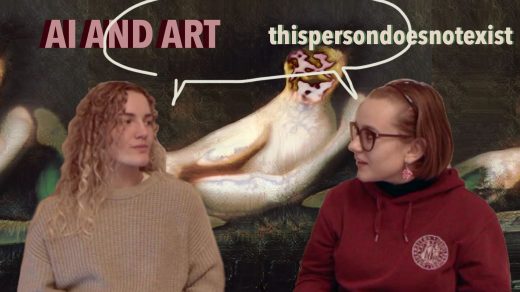
When I Scroll, I Don’t Think
A day in the digital, for most of us being a scroll through social media, looks quite different, even if we are using the same applications like Instagram, TikTok or YouTube. We wake up and grab our phones to look at other people’s lives. What do they have to offer? Sometimes something interesting, sometimes not really, sometimes I can press a heart on a video, and sometimes I will go through the hustle to block someone (oopsie).
However, the whole act is sooo mindless. We scroll and scroll and scroll for hours barely registering any information or images in front of our eyes. Algorithms choose the best content for us or just what it sees fit. I want to put an emphasis on the words “choose” and “fit”. Not all content has an equal opportunity to shine bright and make it on our feeds. Meta – an umbrella company for most of the social media like Facebook or Instagram – uses its power to shadowban, remove and deplatform accounts which go against their “guidelines”.
Well, What Are Their Guidelines? Censorship & “Violence”
Don’t get me wrong, guidelines are always needed, I really do not think that we want to see child kidnappers organizing on social media. But what I want to see, as a student who uses media for basically everything, is my fellow students standing up against genocide. I want to learn from them and get inspired. I want to support and share my own ideas. Yet, it seems like this is exactly the content that Meta finds worthy of destruction. While israel (from a small letter since I do not recognize israel as a legitimate state) is committing genocide of Palestinians, students all around the world started organizing following Boycott, Divestment, Sanctions Movement, asking universities to cut the ties with israeli institutions. For mobilization purposes, information sharing is very important and it is done through social media. People who have been sharing information, or anything that has to do with Palestine for that matter, have noticed that their content on Palestine is being hidden and reaches way less people than brunch selfies with your besties. The peak of it was reached when “Meta” deplatformed Columbia Students For Justice in Palestine account.
Consequently, Meta worker-led campaign to build awareness of “Meta’s” censorship (@metastopcensoringpalestine) released Meta’s guidelines and content moderation policies. Let’s look at some of them:
- Using the red triangle emoji (which, keep in mind, represents Palestinian resistance and is wildly used) can get you “DOI (Dangerous Organizations and Individuals) strikes” which leads to all kinds of censorship.
- When sharing the content regarding “violent events”, you can: 1. News reporting; 2. Neutral discussion (I, personally, can not imagine how any discussion can be neutral); 3. Condemnation of “violent events”.
The problem here lies in what Meta considers “violent events” because for them fighting for your survival, from constant bombing, attacks and food/water restrictions and blockades is more “violent” than people for whom arrest warrants have been issued by the International Criminal Court. Mere support for the fight and resistance is absolutely restricted when the people like Benjamin Netanyahu and Yoav Gallant can freely share whatever they desire.
Food For Thought
Maybe you disagree with me on the whole topic (I will try to change your opinion in the other posts 😈) and say that these specific guidelines are absolutely fair. But I want you to wonder about a couple other things. Firstly, why Meta workers who stood up against genocide were fired? Secondly, why Meta at the end of the day is hardly transparent about their policies and does not disclose everything? Third, why do we have to come up with strategies so our content on Palestine reaches more people? (It has been noticed that when one writes pale$t1ne, inserts a photo of their dog, etc., gets more views/likes)
For now, I will keep you wondering. This post was only meant to shed some light on algorithms and policies, to show you that our day in the digital world might be looking completely different if there was no censorship. Our whole world might be looking completely different. Social media is a powerful tool for organizing and people together is a powerful tool against the state’s status quo (which corporations like Meta empower). Ah, let’s dream about the world without shadowbans and genocides where we are ALL, from Palestine to the Philippines, truly free.
Resources:
- BDS Movement
- Meta Stop Censoring Palestine (MSCP) (@metastopcensoringpalestine) • Instagram photos and videos
- Statement of ICC Prosecutor Karim A.A. Khan KC: Applications for arrest warrants in the situation in the State of Palestine | International Criminal Court
- Dangerous Organizations and Individuals | Transparency Center



Recent Comments